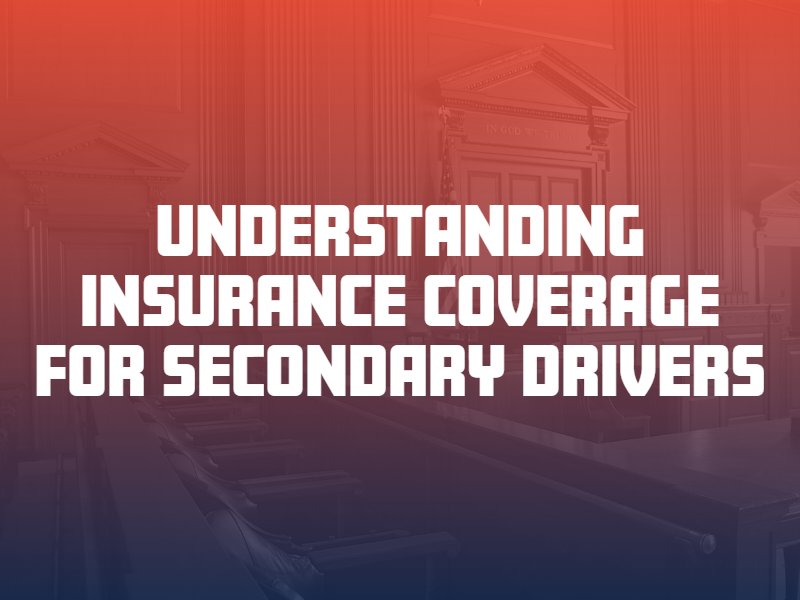Letting a trusted friend or family member borrow your car may not seem like a big deal. If that driver causes a car accident, however, the crash will typically be your legal responsibility – not the driver’s. For this reason, it is important to exercise caution in who you let drive your vehicle. Make sure you fully understand when your insurance does and does not cover damages before letting someone else get behind the wheel.

Does Your Car Insurance Cover Another Driver?
Yes, your car insurance will typically cover injury costs and property damage repairs if someone else was driving your car at the time of an accident. The average auto insurance policy covers the costs of the driver’s medical expenses and damage to the car, even if someone else was driving your vehicle at the time of the crash. There may be an exception, however, depending on the language of your car insurance policy and the circumstances of the crash.
There are a few different reasons your insurance company may deny a claim involving someone else driving your car:
- Someone drove your car without your permission (permissive use policy)
- Someone stole your car and crashed it
- Your policy specifically excludes the person driving
- Your policy does not cover business use of your vehicle
- The person driving did not have a valid driver’s license
- The person driving was under the influence of drugs or alcohol
- The person driving broke another law
If your auto insurance provider denies your claim in one of these circumstances, you may be personally responsible for paying for the related costs of the accident – including repairs to your vehicle, repairs to someone else’s vehicle and an injured victim’s medical bills. This is why it is critical to understand the terms and provisions of your car insurance policy before letting someone else borrow your car.
Primary vs. Secondary Insurance Coverage
Your car insurance will only need to cover damages if the person driving your car was at fault for the accident. Like most states, New Mexico uses a fault-based insurance law, meaning the person who causes the accident covers the damages. In a no-fault state, on the other hand, each driver seeks recovery from his or her own insurer, regardless of who caused the crash. If the other driver in the accident caused the collision, that driver’s insurance will cover the costs of repairing your vehicle instead of your own insurance.
Even if the person you let borrow your car has his or her own car insurance, your policy is the one that covers accidents involving your vehicle. Your car insurance – not the insurance of the person operating your vehicle – will act as the primary source of coverage. The driver’s insurance may provide secondary coverage, however, if your insurance is not enough to fully cover the losses involved in the wreck.
What Is the Vicarious Liability Doctrine for Minors?
In New Mexico, the parents of a minor under the age of 18 are vicariously liable for the actions and mistakes the minor makes. If you let your underage child drive your car, therefore, expect to absorb vicarious liability for any car accidents he or she causes. Your insurance company should cover the costs of the accident if your child was the one driving, however, even if you do not specifically list your child as a covered driver on your policy.
When to Hire a Car Accident Attorney
Auto insurance claims involving someone else driving and crashing your car can be complicated. You may need to hire an attorney for assistance, especially if the accident was severe or your insurance company is denying liability. A car accident lawyer in Albuquerque can help you understand and defend your legal rights, as well as take over negotiations with an insurance provider on your behalf. Talk to a car accident lawyer near you today for more information about these unique types of car accident claims.




